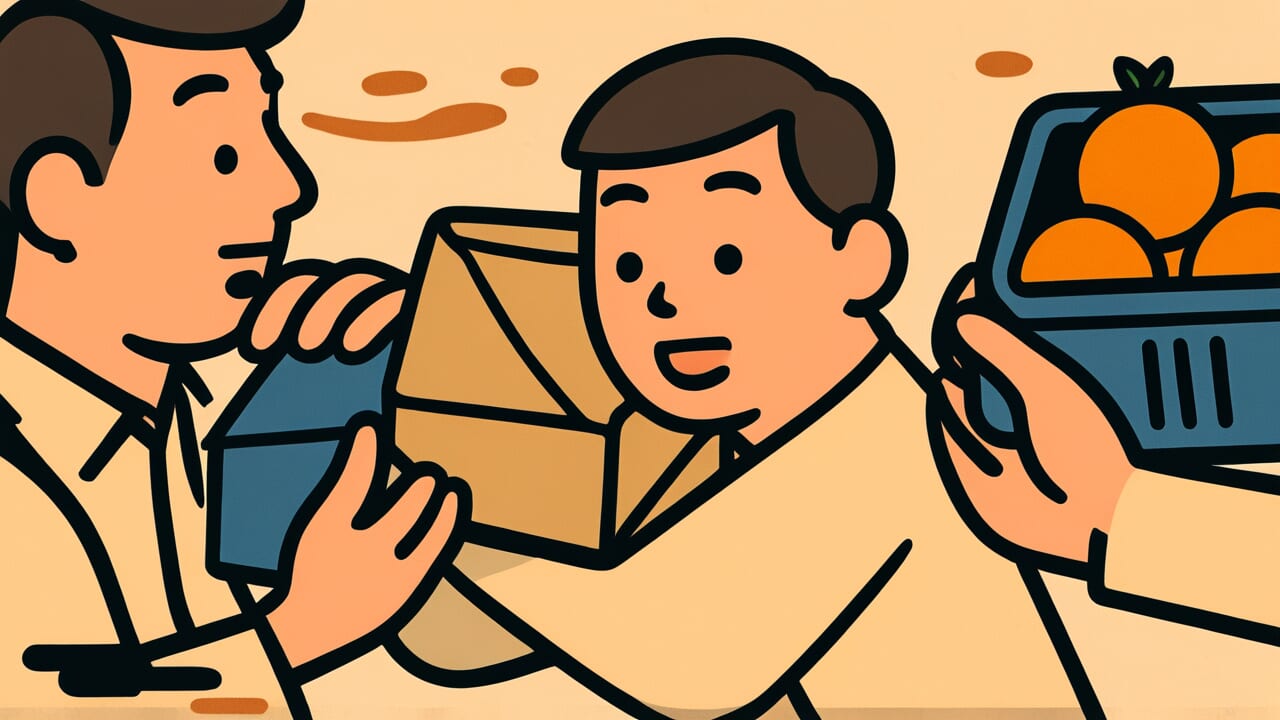How to Read “Injuries and lunch boxes are your own responsibility”
kega to bentō wa jibun mochi
Meaning of “Injuries and lunch boxes are your own responsibility”
“Injuries and lunch boxes are your own responsibility” means that failures or losses caused by your own carelessness or reckless actions should not be blamed on others. You must take responsibility yourself.
Just as it’s natural to prepare and bring your own lunch box, you must also accept the consequences of injuries or damages caused by your own mistakes.
This proverb is used when someone is being careless or trying to make excuses for their failures. It’s especially effective when warning against the attitude of blaming others or circumstances.
In modern society, there’s a tendency to shift blame or sue someone whenever trouble occurs. This proverb reminds us of the importance of taking responsibility for our own actions.
Origin and Etymology
The exact origin of this proverb is not clearly documented in historical texts. However, it’s believed to have emerged from the everyday life experiences of common people during the Edo period.
People back then typically worked day labor jobs or as street vendors, relying solely on themselves. In such environments, no one would compensate you if you got injured at work. Preparing your own lunch box was also taken for granted.
The cleverness of this expression lies in how it treats “injuries” (unexpected misfortune) and “lunch boxes” (daily preparation) as equals. Just as preparing your own lunch is obvious, you should also bear responsibility for injuries caused by your own carelessness.
What’s particularly interesting is that this proverb doesn’t simply preach self-responsibility. Rather, it functioned as a lesson promoting independence and caution.
In an environment where no one would help you, you needed the resolve to protect yourself and handle your own failures. This was practical life wisdom born from the harsh realities of common people’s lives.
Usage Examples
- Since I made a mistake due to insufficient checking, injuries and lunch boxes are your own responsibility—I have to handle it myself
- You rushed down the stairs and fell, so injuries and lunch boxes are your own responsibility
Universal Wisdom
The proverb “Injuries and lunch boxes are your own responsibility” captures the essence of responsibility in human society. We all have the psychological tendency to blame our failures on others or circumstances.
This is an instinctive defense mechanism to protect ourselves. However, our ancestors saw through this human weakness and deliberately conveyed a harsh truth.
This proverb has been passed down through generations not because it’s mere moral teaching, but because it was practical wisdom for making society function. If everyone started blaming their failures on others, society would collapse into endless finger-pointing.
Only when each person takes responsibility for their actions can trust be born and a cooperative society be built.
At the same time, this proverb contains a warmth that encourages independence. People who can accept their own failures have the strength to live without depending on others and to carve out their own path in life.
Taking responsibility isn’t a burden—it’s the first step toward freedom. This profound insight breathes life into these few simple words.
When AI Hears This
In game theory, a situation where you alone bear the consequences of your actions is called “a state without externalities.” This proverb demonstrates exactly this principle.
If people could push the responsibility for injuries onto others, they would be more likely to take dangerous actions. Economics calls this “moral hazard,” the phenomenon insurance companies most guard against.
What’s interesting is that as modern society moves away from this principle, the overall system costs increase. For example, in America’s litigious society, there are cases where customers who spilled coffee and got burned successfully sued the establishment.
Companies then spend enormous amounts on excessive warning labels and insurance premiums, ultimately passing these costs onto product prices. In other words, when the principle of “your own responsibility” collapses, a structure emerges where society as a whole bears inefficient defensive costs.
Paradoxically, a society where each person bears their own risks actually has lower total costs. This is because people naturally become more careful and seek only truly necessary protection.
This proverb intuitively expresses the equilibrium concept from game theory: clarifying where responsibility lies actually increases overall social stability. The principle of self-responsibility sounds cold, but it’s actually the foundation of the most efficient social system.
Lessons for Today
For those of us living in modern times, this proverb holds the key to personal growth. Now that it’s become easy to criticize others or blame circumstances through social media and mass media, the attitude of taking responsibility for your own actions stands out as especially valuable.
When you fail at something, it’s natural to want to blame others or the situation first. But stop for a moment and ask yourself, “Was there anything I could have done?”
That question becomes the driving force for your growth. Taking responsibility actually expands the range of your life that you can control.
As long as you blame others, you remain a victim of circumstances. But the moment you accept it as your own responsibility, you become able to take proactive actions to avoid the same failure next time.
This isn’t a lonely battle. People who fulfill their responsibilities earn trust from those around them and build relationships where they can receive help when they truly need it.



Comments